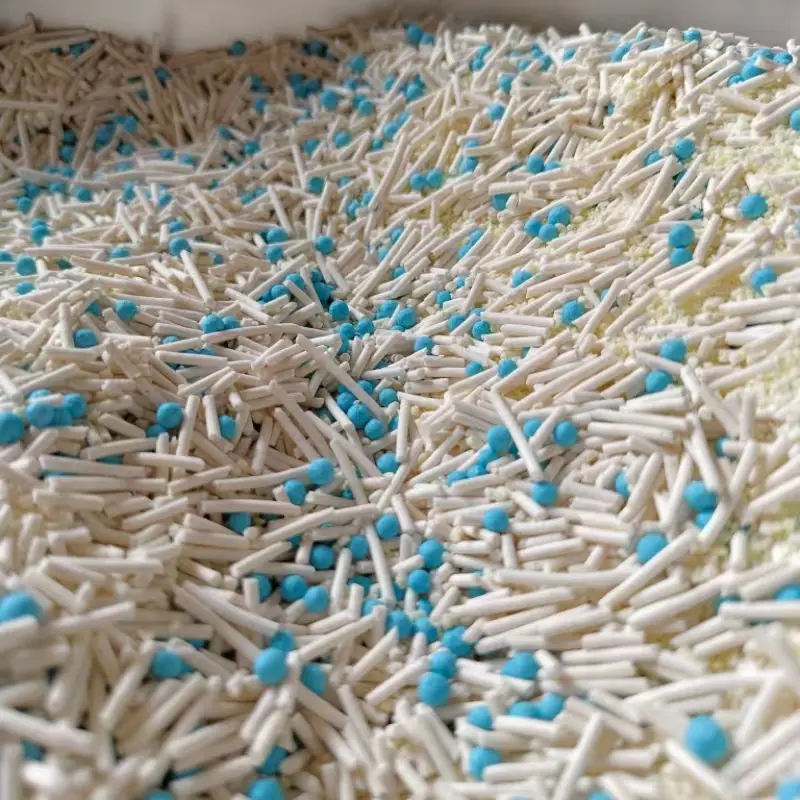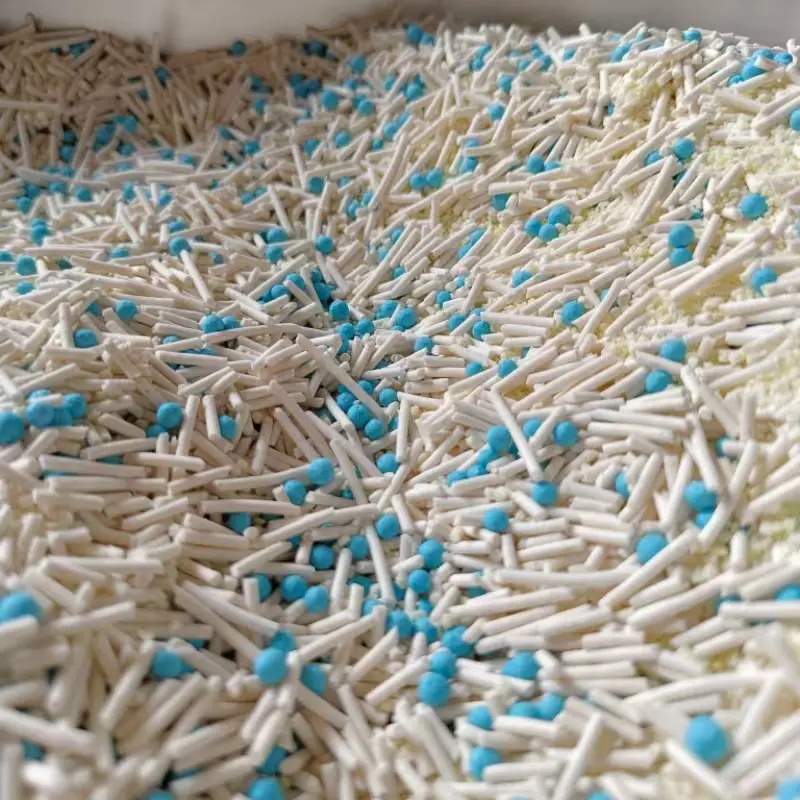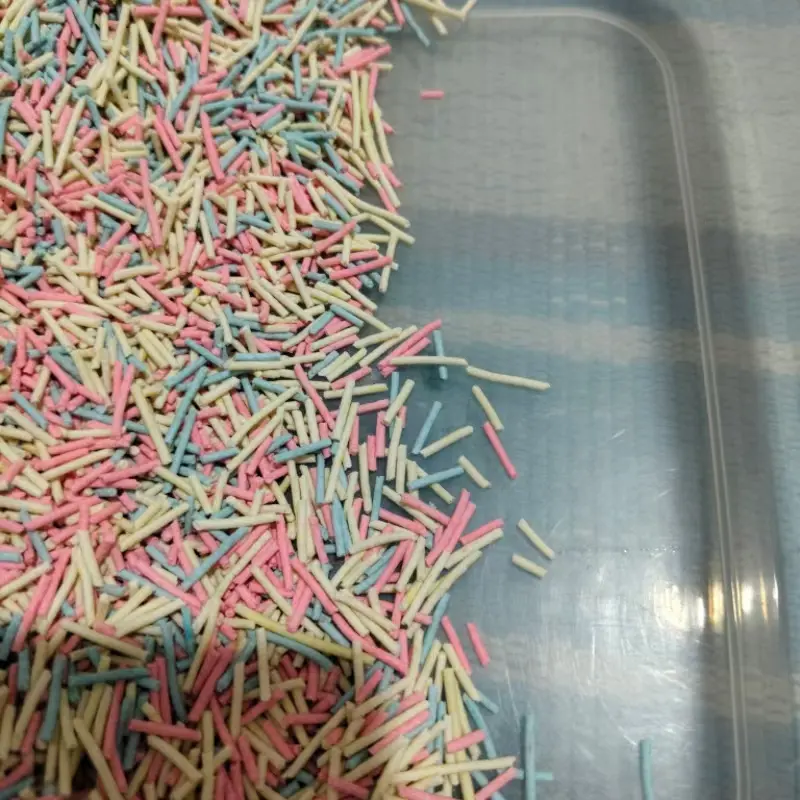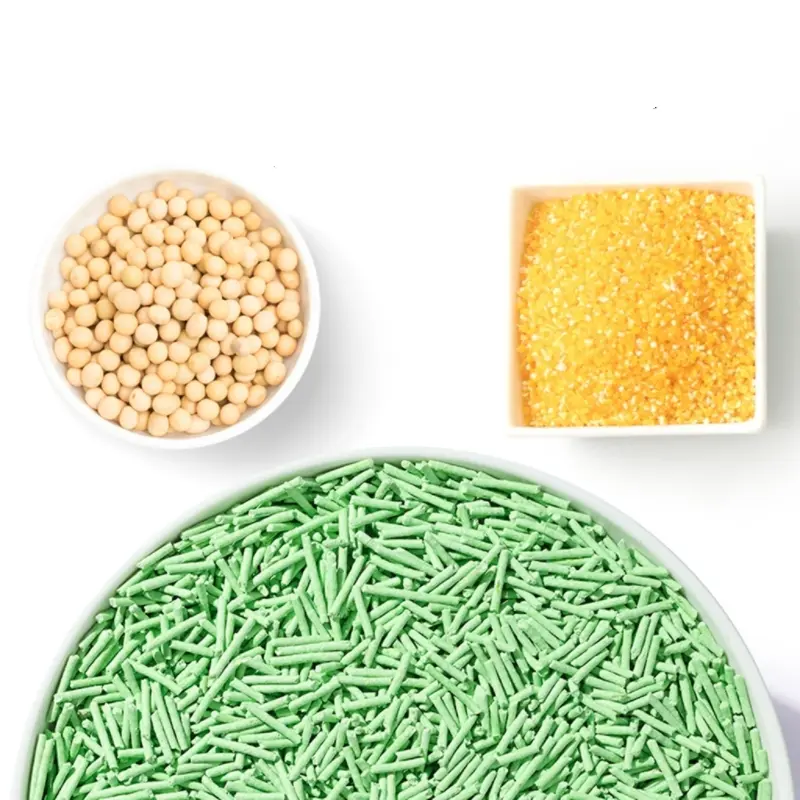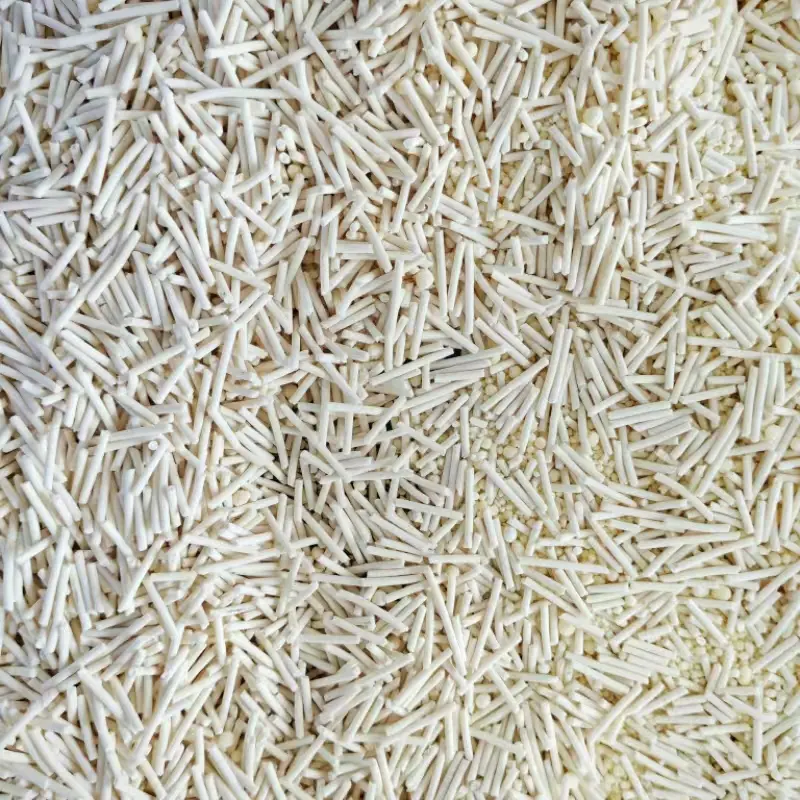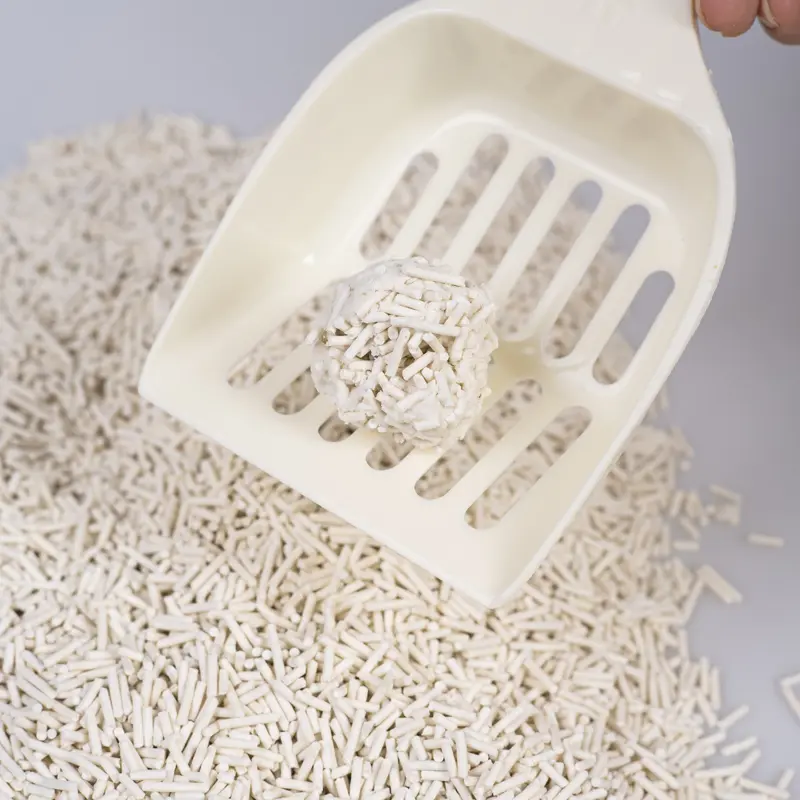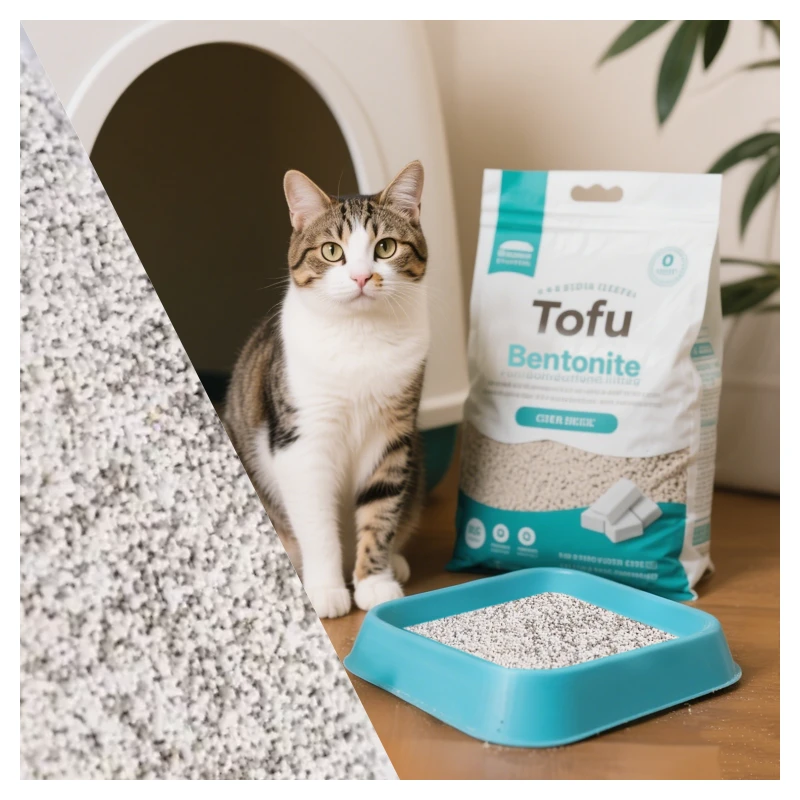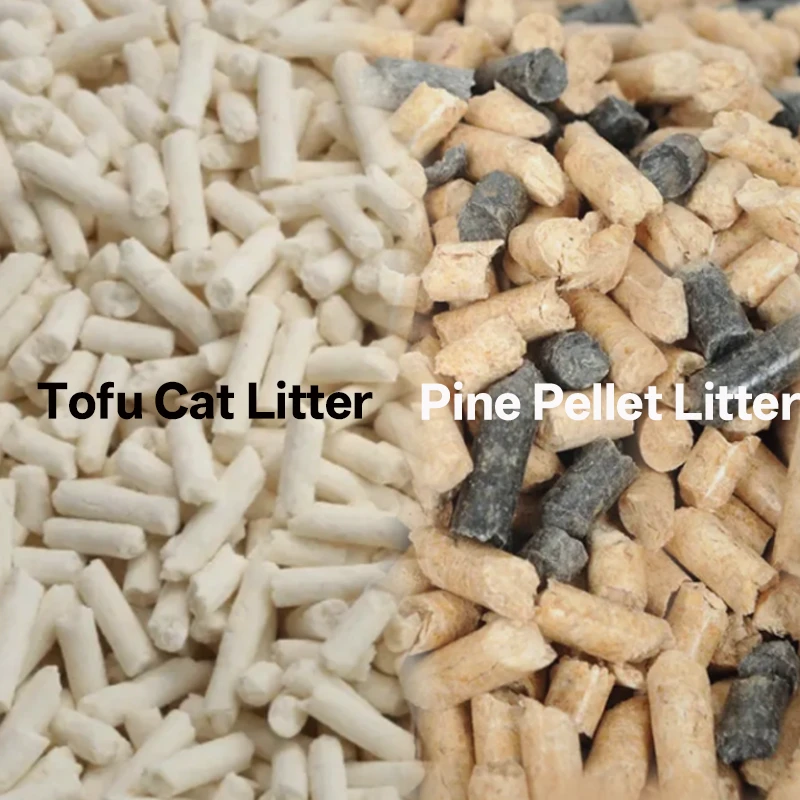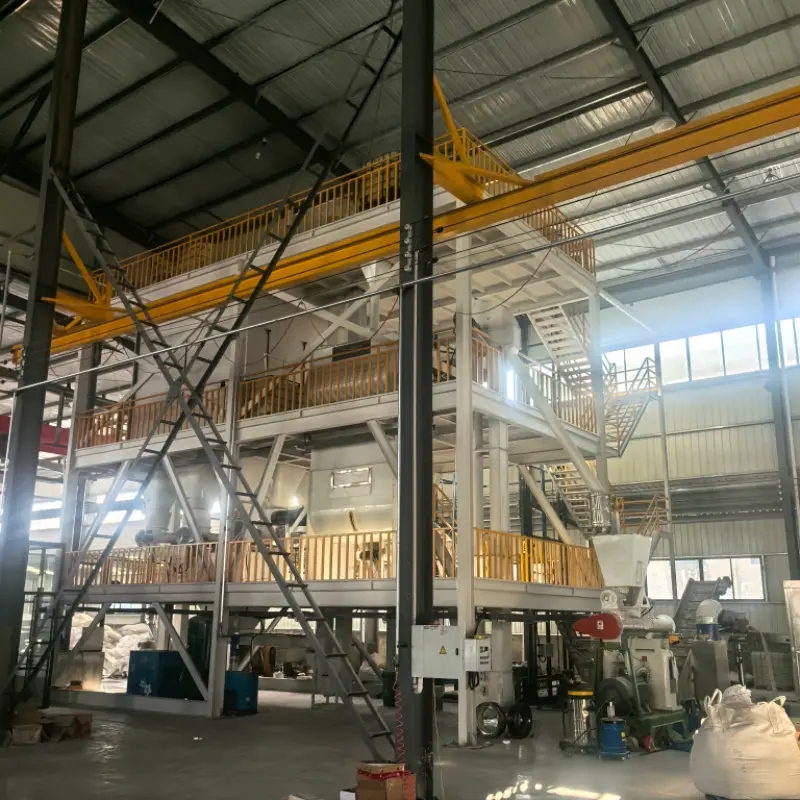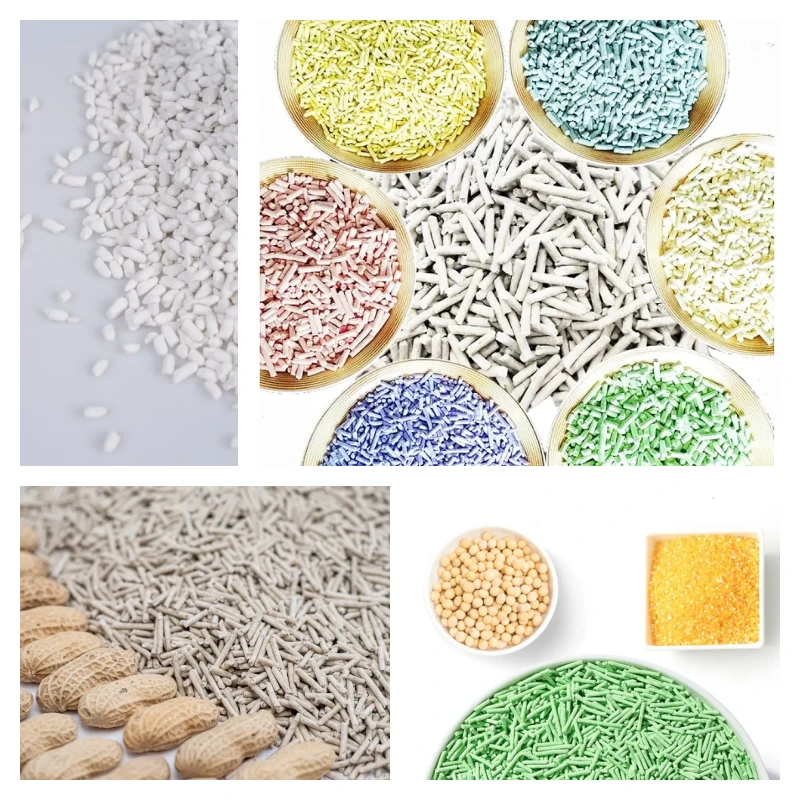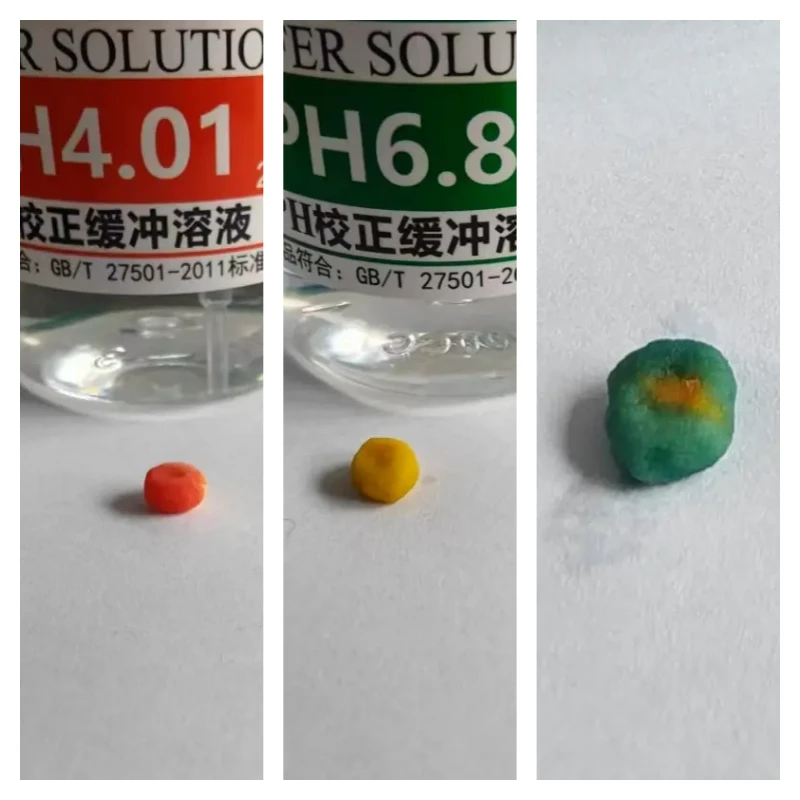What is Corn cat litter?
Corn cat litter, also known as corn-based cat litter, is a type of cat litter made primarily from corn kernels or corn-based materials. It's an alternative to traditional clay-based or silica gel cat litters.
Corn cat litter is a bio-based cat litter product derived primarily from corn kernels or corn-based materials. It stands out in the market due to its environmentally friendly attributes and growing appeal to consumers seeking sustainable pet care options.
From a commercial standpoint, corn cat litter offers several key selling points. It is often marketed as a natural, biodegradable, and renewable alternative to traditional clay-based or silica gel cat litters. This eco-friendly appeal resonates well with environmentally conscious pet owners, driving its increasing popularity in the pet care industry.
The product boasts effective odor control and clumping properties similar to conventional litters, forming clumps upon contact with moisture for easier waste removal. Additionally, its dust-free nature appeals to consumers concerned about respiratory issues in their pets or households.
Wholesale distributors recognize the importance of highlighting these features to retailers, emphasizing the product's benefits in marketing campaigns and sales pitches. They aim to educate retailers on the advantages of corn cat litter, providing them with promotional materials and information to effectively communicate these benefits to potential customers.
Furthermore, from a business perspective, corn cat litter presents opportunities for retailers to diversify their product offerings and cater to the preferences of pet owners seeking more natural and sustainable choices for their pets. It allows retailers to tap into a growing market segment focused on eco-conscious pet care products.
As with any product, wholesalers and retailers continually assess consumer feedback, market trends, and product performance to ensure they meet customer demands and maintain a competitive edge in the pet care industry.
So what are the Pros and Cons of corn cat litter?
Pros:
Biodegradable:
Corn cat litter is typically biodegradable and made from renewable resources, which can be appealing to environmentally conscious cat owners.Its main materials are corn flour,corn starch and pea fibre, which are all natrual and plant-based.
Clumping Properties:
Corn-based litters have clumping abilities, making it easier to scoop out soiled litter and keep the litter box clean.Our food-grade guar gum can make corn cat litter clumps well and non-toxic to your cat's health.
Low Dust:
Corn cat litter tends to produce less dust compared to clay-based litters, which can be beneficial for cats and their owners, especially if your cat has respiratory sensitivities. Corn cat litter is made from the best materials, it also not easy to produce the dust at the bottom of litter box when you use it.
Natural and Non-Toxic:
Corn litter is made from natural corn kernels and is generally considered safe for cats. It's free from synthetic chemicals and fragrances that some traditional litters may contain.
Odor Control:
As corn cat litter can clumps hard, it can be effective at controlling odors, helping to maintain a fresh-smelling environment.The corn materials also can help to eliminate the odors.

"From this picture we can see the clumps are tight, it can be coverd the odors and easy to be scooped out from litter box"
Cons:
Tracking:
Corn cat litter can be prone to tracking, meaning it may stick to your cat's paws and be spread around your home.But if you pick up a right size of pellets, it will be not easy to be brought out of litter box.
Scooping and Clumping:
While it clumps well, the clumps can sometimes be softer and less robust than those formed by clay litters, making them a bit more challenging to scoop. Our corn cat litter with the best guar gum,which can be make the clumps are more tight than normal corn cat litter and not easy to be broken.
Attractiveness to Pests:
The natural scent of corn may attract insects, particularly in humid or warm environments. Proper storage and hygiene are essential to avoid this issue.
Cost:
Corn cat litter can be more expensive than traditional clay litters, which may be a consideration for some cat owners.

"This picture showed the corn cat litter can be dissolved into water very quickly, so it can be flushed into your toilet"
OEM (original equipment manufacturer) corn cat litter and wholesale corn cat litter are two different business models, and each has some pros and cons.
Corn Cat Litter Overview
Corn cat litter is made from natural, renewable corn material. It is lightweight, absorbent, and offers good clumping properties. Its main selling points include biodegradability and low dust levels, making it a popular choice among environmentally conscious pet owners.
Specifications:
Material: Corn kernels or corn cob fibers
Dust Production: <1%
Absorbency: Up to 3-4 times its weight
Clumping Ability: Good
Odor Control: Moderate to high
Cost: $1.5 - $2.5 per kg
Comparison with Other Types of Cat Litter
Corn Cat Litter vs. Bentonite (Clay) Cat Litter
| Aspect | Corn Cat Litter | Bentonite (Clay) Cat Litter |
|---|---|---|
| Performance | Clumps well, good absorbency | Excellent clumping, high absorbency |
| Dust Levels | <1% dust | 10-20% dust |
| Odor Control | Moderate to high | High |
| Environmental Impact | Biodegradable, eco-friendly | Non-renewable, environmental damage |
| Cost | $1.5 - $2.5 per kg | $0.5 - $1.5 per kg |
Pros of Corn Cat Litter:
Biodegradable and compostable, reducing environmental impact.
Low dust production, minimizing respiratory issues for cats and owners.
Cons of Corn Cat Litter:
Higher cost compared to clay litter.
Slightly less effective in clumping and odor control compared to premium clay litters.
Pros of Bentonite Cat Litter:
Superior clumping ability and odor control.
Cost-effective, widely available.
Cons of Bentonite Cat Litter:
High dust production, potentially causing respiratory issues.
Non-biodegradable, harmful environmental impact due to strip mining.
Corn Cat Litter vs. Pine Cat Litter
| Aspect | Corn Cat Litter | Pine Cat Litter |
|---|---|---|
| Performance | Clumps well, good absorbency | Moderate clumping, good absorbency |
| Dust Levels | <1% dust | 2-5% dust |
| Odor Control | Moderate to high | High (natural pine scent) |
| Environmental Impact | Biodegradable, eco-friendly | Biodegradable, concerns over deforestation |
| Cost | $1.5 - $2.5 per kg | $1 - $2 per kg |
Pros of Corn Cat Litter:
Excellent clumping and absorbency with low dust production.
Made from renewable resources, environmentally friendly.
Cons of Corn Cat Litter:
Slightly higher cost compared to pine litter.
May not mask odors as effectively as pine’s natural scent.
Pros of Pine Cat Litter:
Strong natural odor control due to pine scent.
Biodegradable, can be composted.
Cons of Pine Cat Litter:
Moderate dust production, especially when crumbled.
Some cats may be allergic to pine or dislike the strong scent.
Corn Cat Litter vs. Paper Cat Litter
| Aspect | Corn Cat Litter | Paper Cat Litter |
|---|---|---|
| Performance | Clumps well, good absorbency | No clumping, moderate absorbency |
| Dust Levels | <1% dust | 0% dust |
| Odor Control | Moderate to high | Low |
| Environmental Impact | Biodegradable, eco-friendly | Recycled material, eco-friendly |
| Cost | $1.5 - $2.5 per kg | $1 - $2 per kg |
Pros of Corn Cat Litter:
Clumps well, making it easier to scoop and maintain.
Good odor control compared to non-clumping litters.
Cons of Corn Cat Litter:
Higher cost compared to paper litter.
Some cats may eat it due to its corn smell, which can lead to digestive issues.
Pros of Paper Cat Litter:
Dust-free, ideal for cats with respiratory issues.
Made from recycled paper, very eco-friendly.
Cons of Paper Cat Litter:
Does not clump, making it harder to clean and maintain.
Poor odor control, requiring frequent changes.
Corn Cat Litter vs. Tofu Cat Litter
| Aspect | Corn Cat Litter | Tofu Cat Litter |
|---|---|---|
| Performance | Clumps well, good absorbency | Clumps well, excellent absorbency |
| Dust Levels | <1% dust | <0.5% dust |
| Odor Control | Moderate to high | High |
| Environmental Impact | Biodegradable, eco-friendly | Biodegradable, eco-friendly |
| Cost | $1.5 - $2.5 per kg | $1.8 - $3 per kg |
Pros of Corn Cat Litter:
Slightly cheaper than tofu litter with good clumping and odor control.
Lightweight and easy to handle.
Cons of Corn Cat Litter:
Less absorbent compared to tofu litter.
May attract pests if not stored properly due to its food-like properties.
Pros of Tofu Cat Litter:
Superior absorbency and odor control.
Flushable and minimal tracking.
Cons of Tofu Cat Litter:
Higher cost compared to corn litter.
Limited availability in some regions.
Health Benefits of Corn Cat Litter
Corn cat litter is particularly beneficial for cats with respiratory issues due to its low dust production. This minimizes the risk of respiratory irritation or asthma flare-ups. Additionally, the natural composition of corn litter reduces the likelihood of allergic reactions. Key benefits include:
Low Dust Production: Less than 1% dust levels significantly reduce the risk of inhalation and respiratory complications.
Natural Composition: Free from chemicals and additives, making it a safer option for sensitive cats.
Non-Toxic if Ingested: If a cat ingests a small amount, it is less likely to cause harm compared to clay or silica-based litters.
Suitability for Different Cats
Kittens: Corn cat litter is generally safe for kittens due to its non-toxic nature. However, kittens may be tempted to eat it, so supervision is required initially.
Adult Cats: Suitable for most adult cats, especially those with respiratory issues or allergies. The good clumping ability and odor control make it convenient for multi-cat households.
Senior Cats: The lightweight nature of corn litter makes it easy for senior cats to dig and cover. Additionally, the low dust levels are ideal for older cats prone to respiratory problems.
Specific Data for Comparison
Absorbency Rate: Corn cat litter can absorb up to 3-4 times its weight, compared to 1-2 times for clay and 5-6 times for tofu litter.
Dust Levels: Corn litter has <1% dust, while clay litter can have up to 20% dust.
Odor Control Efficiency: Corn litter neutralizes odors by 80-85%, whereas tofu litter can reach 90-95% efficiency.
OEM VS Wholesale corn cat litter
OEM Corn Cat Litter (Original Equipment Manufacturer):
Pros
Brand autonomy: You can build your own brand image by printing your own brand name and logo on the corn cat litter packaging.
Low market risk: There is no need to develop corn cat litter from scratch because existing products are already on the market.
Focus on sales and marketing: You can focus on sales and marketing without spending energy and resources on production.
Possibility of customization: Corn cat litter has a certain degree of customization and can be adjusted and modified according to customer needs.
Cons
Low profit margins: Since corn cat litter is manufactured through a third party, profit margins may be lower. However, it saves the cost of building a factory, management costs, etc. From this perspective, it increases profit margins.
Lack of uniqueness: Corn cat litter may lack uniqueness because other brands may use the same OEM manufacturers to produce similar products. Therefore, you can discuss with us the parameters of customized corn cat litter to avoid homogeneity and price competition.
Dependence on external suppliers: Dependence on external suppliers is high and may be affected by the supplier's production capacity and quality control.
Wholesale corn cat litter:
Pros
Higher Profit Margins: Higher profit margins can be achieved by wholesale corn cat litter because the production cost of corn cat litter is likely to be lower.
Greater Brand Control: Can have greater control over brand image and market positioning because Corn Cat Litter is produced and sold directly by itself.
Flexibility: Product specifications, packaging, etc. can be more flexibly adjusted to meet market demand.
By wholesale selling corn cat litter from other companies’ brands, you don’t need to invest much money in the early stage.
Cons
High initial cost: higher capital investment is required for production equipment, raw materials and human resources.
Market risk: Market risks need to be borne, including poor product sales, inventory backlog and other issues.
Production management challenges: Challenges in managing production processes, quality control, etc. may require certain experience and expertise.
Conclusion
Corn cat litter offers a balanced solution between performance, cost, and environmental impact. It stands out for its low dust levels, good clumping ability, and eco-friendly nature. While it may not outperform clay in clumping or tofu in absorbency, it provides a well-rounded, safe, and sustainable option for cat owners. Understanding the pros and cons of each type of cat litter helps in making an informed decision based on your cat's needs and your environmental values.
If you choose someone else's brand, you are marketing and publicizing it for someone else.
Therefore, choosing OEM corn cat litter or wholesale corn cat litter depends on the specific situation and preferences of the company. If a company wants to focus more on sales and marketing and is willing to take on some supply chain management challenges, then choosing an OEM may be more appropriate. And if the company wants to better control the brand image and obtain higher profit margins, and is willing to invest more money and resources in production, then wholesale may be more suitable.
As with any cat litter type, it's important to monitor your cat's reaction when transitioning to a new litter. While corn cat litter is generally safe, some cats may have individual sensitivities or allergies. If your cat experiences discomfort or health issues after switching to corn litter, discontinue use and consult with your veterinarian.
Ultimately, the choice of cat litter depends on your cat's preferences, your environmental concerns, and your specific needs as a pet owner.Gelin Town Pet produce a full range corn cat litter, all of their product can be submitted for your test.If you have any interest, please contact us.

